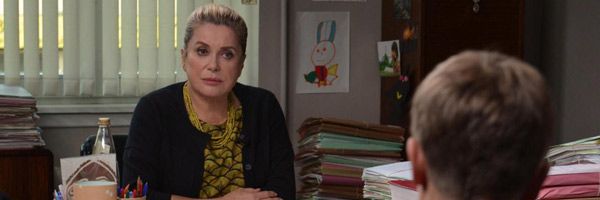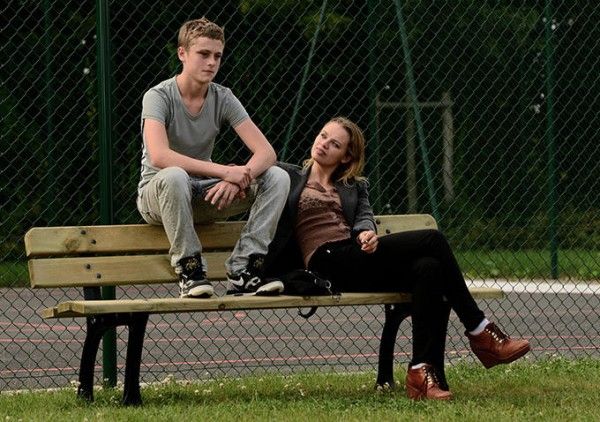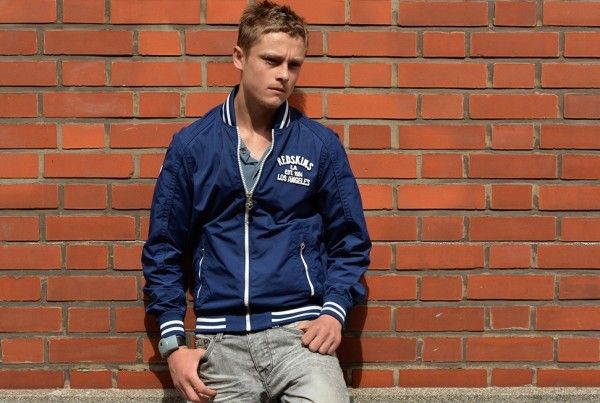The Cannes Film Festival opened with the usual glam and glitter, but also a promising fortnight of eclectic films. Hosted by French actor Lambert Wilson, the opening ceremony was followed by the screening of the off-competition opening film Standing Tall, directed by actress Emmanuelle Bercot and starring Catherine Deneuve, Benoît Magimel, Sara Forestier and newcomer Rod Paradon.
At first, I was scared. I have come to develop a fear of French films that talk about social issues as they end up resembling Lifetime movies, only more dramatic. Or like a Dardenne Brothers film. But my fear was hindered from developing into a phobia with this brutally honest film, a sort of homage to France’s relentless juvenile social workers.
Malory (Rod Paradon) is a hotheaded, troubled kid. Abandoned by his mother as a small child, he has been a regular visitor to the juvenile court and even prison. Despite his regular violent outbursts, an unlikely bond forms between him and the juvenile magistrate Florence Blaque (Deneuve) and Yann (Magimel), a caseworker whose own childhood was marred by similar experiences. They persevere in their pursuit of putting him on the right path, hoping they can save him from a criminal future, yet he remains his own worst enemy. From carjacking and driving without a license to kidnapping his little brother Toni who was remanded to a children’s home, his journey is a bumpy ride.
When Malory is sent to an education center for juvenile delinquents, he discovers the first sparks of love in the person of tomboy Tess (Diane Rouxel, who appears in Larry Clark’s The Smell of Us), one of the youth counselor’s daughter. Will love -- whether for her, his overbearing mother or the magistrate save him? It’s hit or miss. The love story with Tess is slapdash at first: we are intrigued by her attraction to him. He is, despite his tough demeanor,
According to Sara Forestier, who plays his young, single, pothead mother, “he’s violent towards others because he doesn’t like himself, like when he says I’m a good-for-nothing.” Magimel disagrees. “We can do bad things and still have a lot of self-esteem. Malory is not even good at being a thug, so he’s hopeless.”
At age 19, this is woodworking student Rod Paradon’s first film. And what a debut alongside Deneuve. He almost steals the limelight from her, yet they balance each other out. And it was not an easy role to play as he is the polar opposite of Malory. “I had a coach who not only helped me learn my lines, but who also helped me understand Malory and become Malory.”
The cast was also helpful to the young actor. “We’re like one big family,” says Rod. During the photocell prior to the press conference, Forestier was very maternal towards him, guiding him through the surreal experience that is Cannes. And he insists he’s not as hotheaded as his character. “I’d rather stand tall but remain cool.”
All characters and events are fictions, Bercot insists, but everything involving French law is real. “I would never take artistic liberties with the law.” So she did extensive research into how the system works and observed a magistrate at work, as did Catherine Deneuve. “I went to the juvenile court to observe. I was interested in the tone, in how they addressed the kids, I was very surprised because I wasn’t expecting them to be so patient with the kids.” Her character is sympathetic and maternal yet stern.
Bercot avoided shooting this film in a documentary style and chose to confine it within the judge’s office and the juvenile detention centers. The film basically follows Malory’s journey until the end. Standing Tall was shot in Dunkirk in northern France, known for its gloomy overcast skies. Yet the movie is luminous enough to shed a ray of hope for Malory.
Filming in Dunkirk was not easy, however, especially after Deneuve’s comments about the city. A few months ago, her comments caused controversy when she said the weather was bad and they were choking. Her comment was in fact edited and taken out of context, making it sound like she disliked the town. Outspoken, anything Deneuve says these days is taken out of proportion. Honesty is not always the best policy, it seems. The latest “scandal” involves her recent declaration that there were “no more stars.” The phrase went around the world faster than you can say “Deneuve”, thanks to social media. I personally don’t see why something so banal would cause such a stir but apparently many others do, which compels her to explain herself when a journalist brings it up. Another one reminds her that a caricature of her graces the cover of the latest issue of Charlie Hebdo, much to her surprise. “What is it? I haven’t seen it,” she says. “If it’s bad, I hope it’s at least funny.”
The headline on the cover reads: “There’s a suspicious package… False alarm, it’s Catherine Deneuve.”
Another topic that kept creeping up was the limited number of female filmmakers. Bercot is flustered. “There are many female filmmakers. This year, there’s Valérie Donzelli and Maiwenn in the Official Selection. I don’t think it’s a question of mathematics. Women in French cinema are really taking off. There’s a younger generation of female filmmakers that’s emerging in France.”
And when asked why the film wasn’t in competition, Bercot replied: “I don’t know why. I’m hoping Thierry Frémaux will tell me after the festival is over!”



